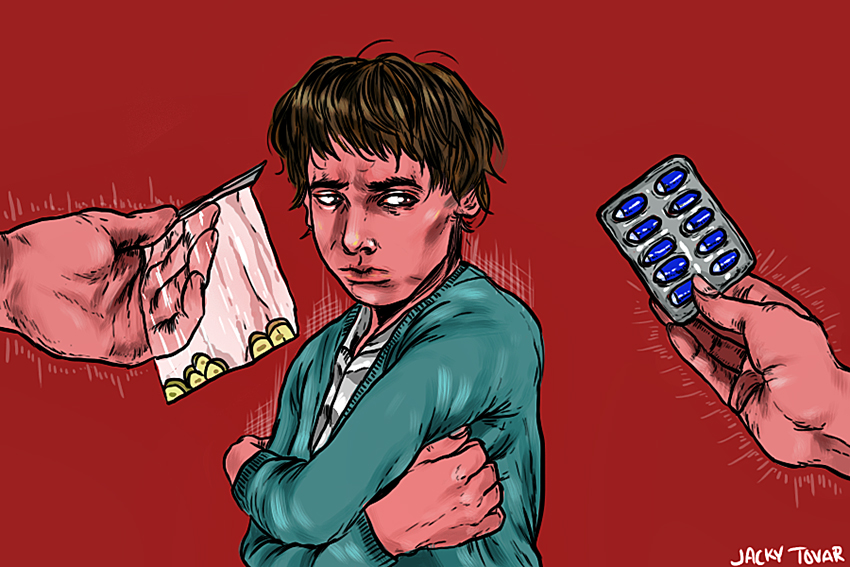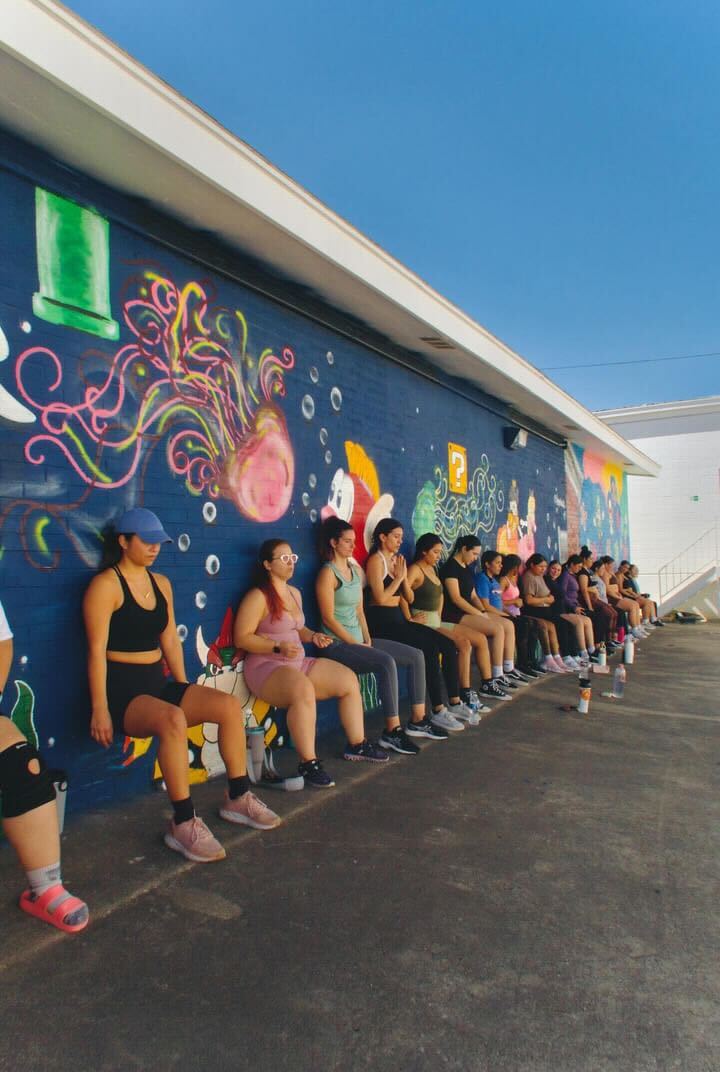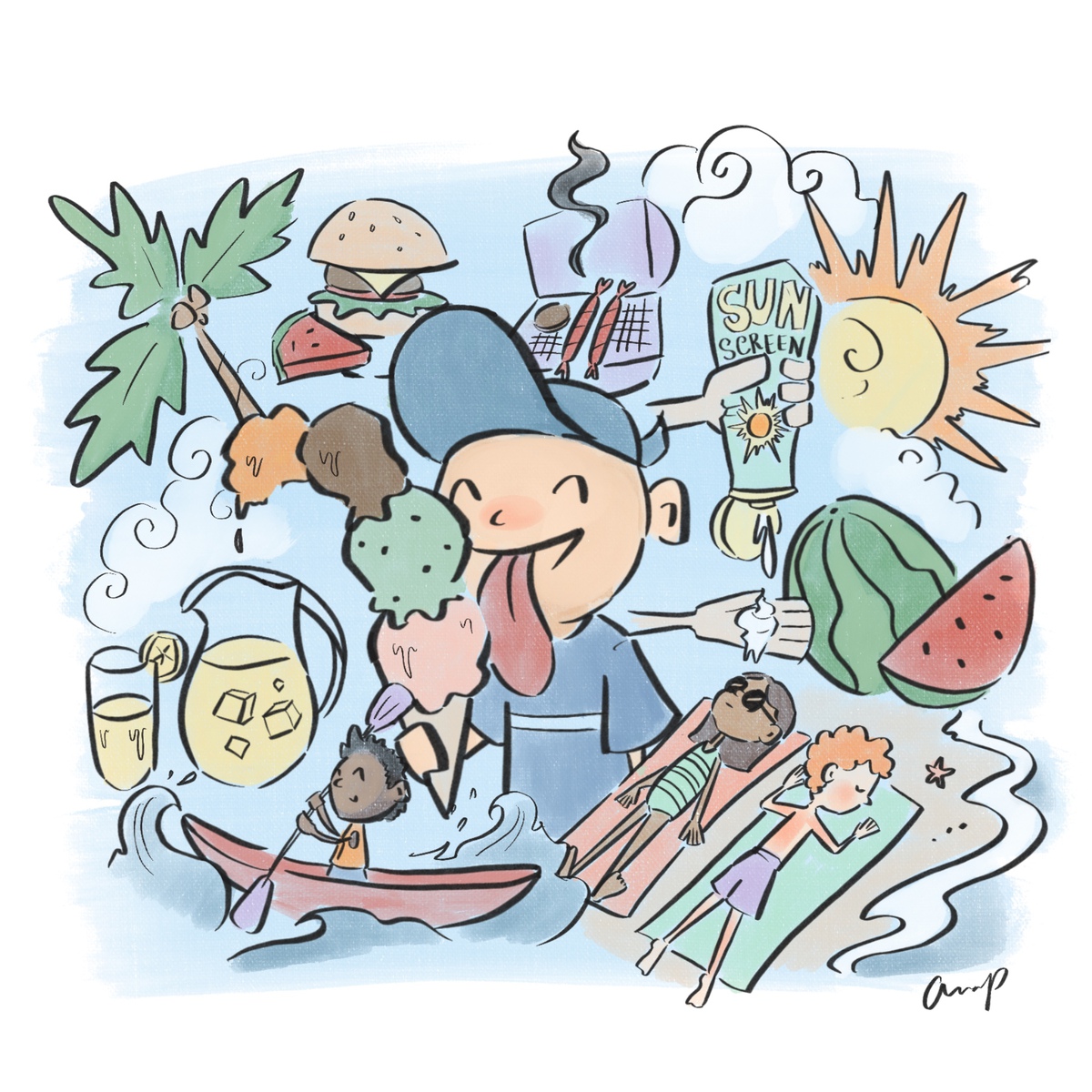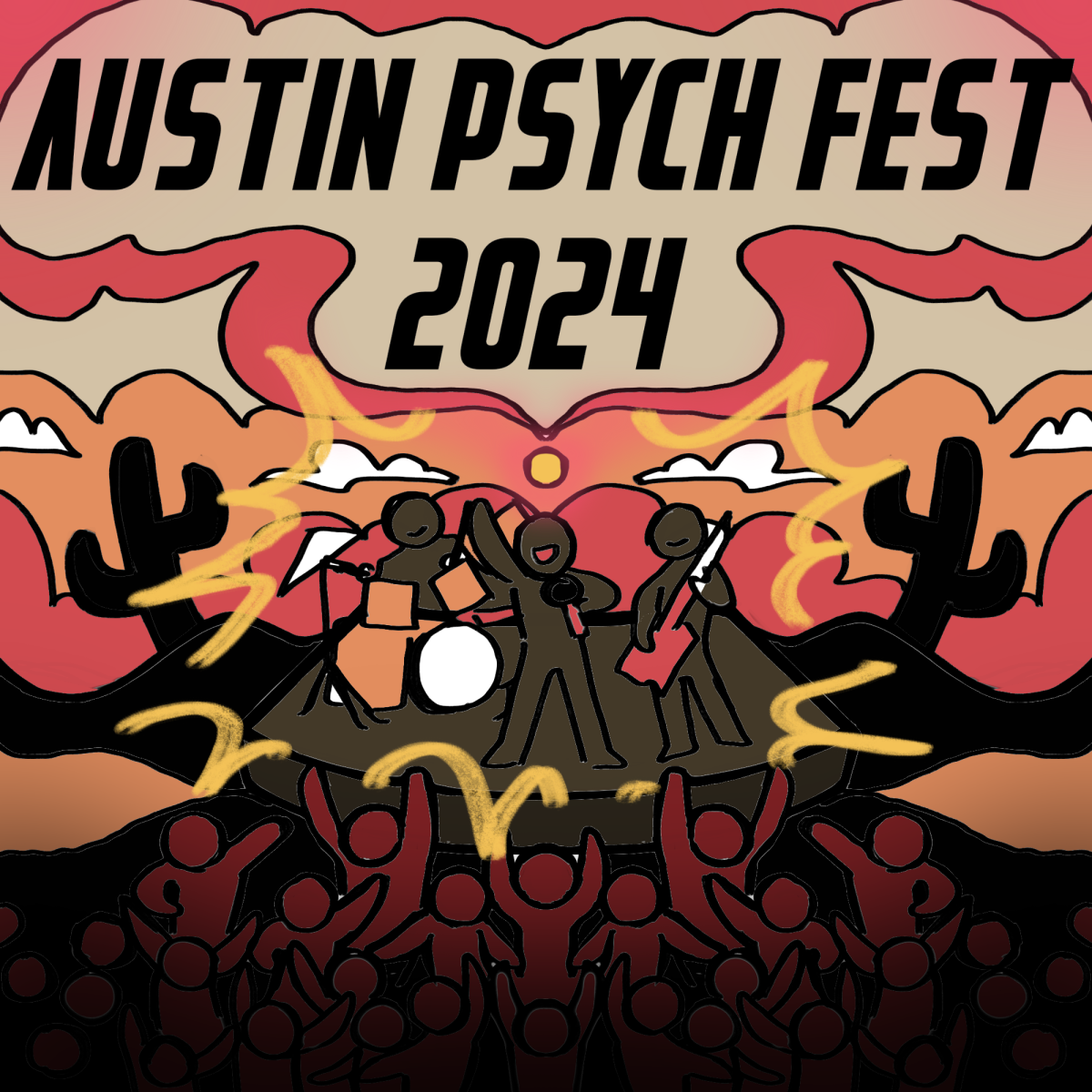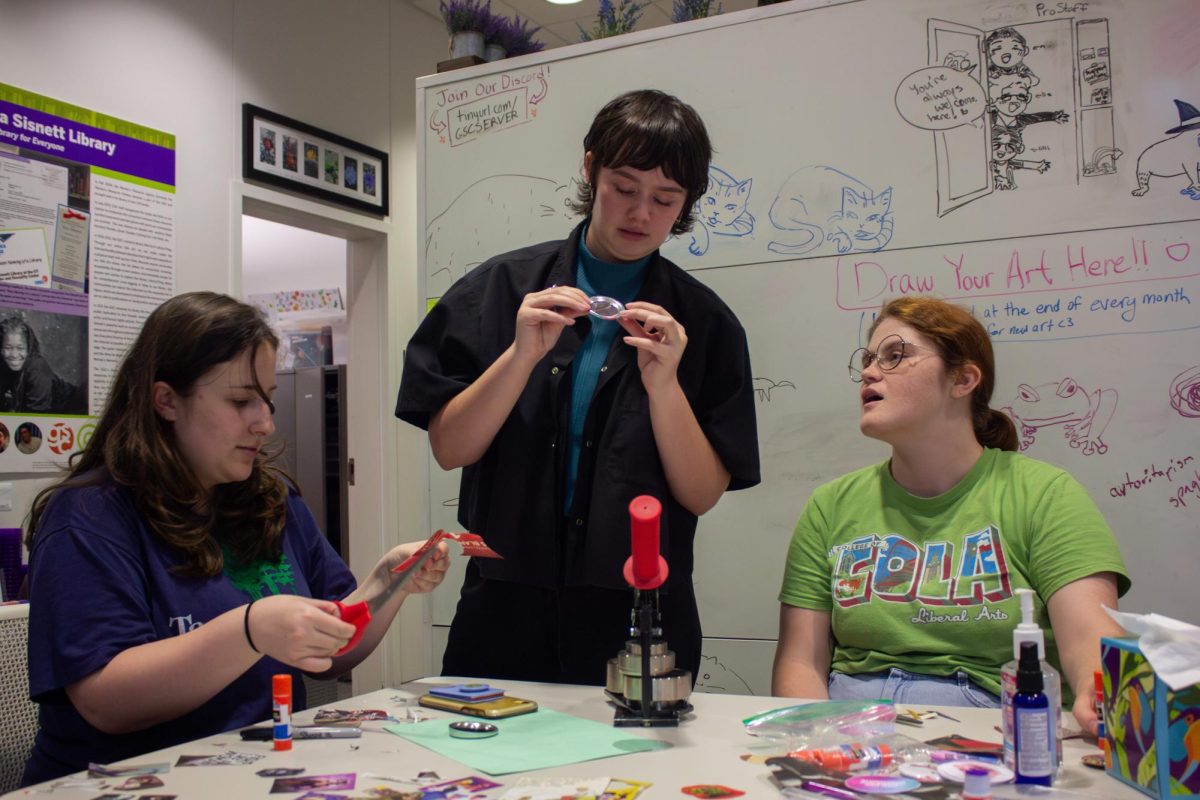Editor’s note: Student names have been changed for the sake of privacy.
When he came to college, business junior Wes Mantooth was nothing more than a casual marijuana smoker. But when he saw how much fun everyone around him seemed to be having using harder drugs, he upgraded. Now, he uses any combination of cocaine, Xanax, hydrocodone or Adderall at least three days out of the school week and throughout the entire weekend.
“Coming to college, study drugs, downers and cocaine become much easier to find,” Mantooth said. “In a place like West Campus, it’s not something you really need to seek out. It finds you, and at a certain point, dealers are flat out throwing themselves at you competing for your business.”
According to a statistic from University Health Services, the second-most used drugs are prescription drugs behind marijuana. The most at-risk demographics include: males, Caucasians, students affiliated with fraternities and sororities, students at competitive four-year institutions, those with higher family incomes and those with declining GPAs. Fifty-eight percent of students users get prescription drugs from their peers and are attracted to them because they are relatively cheap, easy to access and perceived as safe.
UTPD Officer Robert Land said he is aware of an increase in student reports of prescription drug abuse and availability, but that doesn’t come as a surprise. The department continuously monitors drug trends around the country in order to prepare for them on campus.
“There has been a nationwide trend in opiate usage,” Land said. “Our department has been preparing for it, by training our officers with Naloxone, which can reverse the effects of an opioid overdose, so we can immediately apply it if necessary while we call for better medical help.”
When it comes to drug culture, Land said the best thing students can do is consider the risks that come with drug use.
“You’ve made a significant investment, as far as time and money, into your future,” Land said. “But if you’ve got a felony conviction, a lot of that investment is put in jeopardy. So respect the investment you’ve made in yourself and your future.”
Although UT requires students take a drug and alcohol safety course before enrolling, Mantooth said he thinks the University could do a better job promoting drug safety.
“I think a lot of students start using drugs like cocaine and Xanax without realizing what kind of effects they can have on their bodies,” Mantooth said. “I think the drug and alcohol safety education here should come more from a place of ‘These are real dangers and we have the resources on campus to help you if you think you have a problem.’”
Mantooth said he occasionally worries about eventually having to put an end to his drug habit.
“I’d like to believe I could stop if I wanted to,” Mantooth said. “That being said, it’s something I think about a lot and it does concern me that I can’t say it with 100 percent confidence.”
Mantooth said he hasn’t attempted to stop yet because of the West Campus party culture he’s immersed in.
“You’d be hard-pressed to find a gathering anywhere in this area with upwards of five people that does not have some form of substance,” Mantooth said. “And for me personally, anything I would consider a party would have hard drugs.”
While some students use hard drugs for enjoyment, others have already had to face the problem of dependency. Business sophomore Bill Walker said he had to learn about the adverse effects of prescription drugs the hard way.
“I used to do a lot of Xanax because I thought it was fun,” Walker said. “Then I tried to stop and realized that you get withdrawals, [which] were fucking shitty. I don’t even want to talk about it.”
Although he admitted there is undoubtedly a drug problem in West Campus, he doesn’t think the situation is different from other colleges in the country.
“Anywhere you go to college, you’re going to be faced with similar opportunities,” Walker said. “You’re going to have more free time than ever before to get into trouble. That’s an easy trap for kids to fall into."



